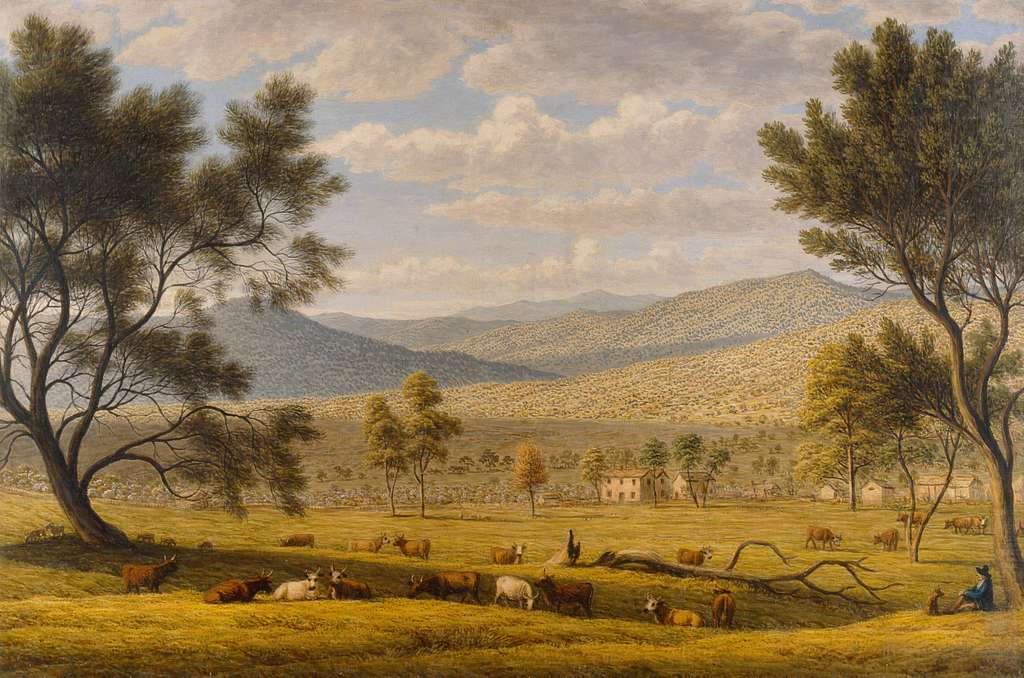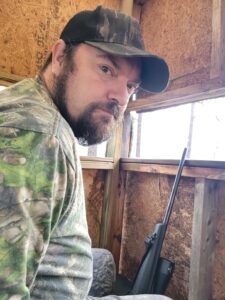I had the opportunity recently to fry up some livermush as we partook of some eggs from the chickens my younger daughter raised through her 4-H pullet project. Preparing this meal and relishing these very local eggs reminded me of how privileged we are to be able to enjoy such meals yet not depend on the food we raise for our survival. So much of what we eat and enjoy nowadays is born out of the hard work we do not have to do. I grew up a generation removed from hog killing, tobacco drying, and coal mining. I dabbled in some of these activities, but it was more of a “remember when,” family reunion-type jangling. My mom went to Kroger or the Pig where factory-raised beef and turkey were neatly wrapped and packed for our regular need. We were raised hearing stories about life in the old days, our grandads talked about dirt floors and outhouses, and we lapped up those tales as words propounding the blessings of poverty in a day and age when no one really knew what that word meant. Living indoors, having the Lord on your side, and being employed was enough to make one think you’d died and gone to heaven. I have a feeling that the movement to return back to the homestead is born as much out of a desire to revolt from the antiseptic meaninglessness of modern life as it is to go organic and crunchy.
So little seems to matter today. Our politics is not even good enough to be corrupt; it’s just kind of pathetic. However, when you are running that probably too expensive knife across the throat of that Murray McMurray mail-ordered chicken there is an idea of the spirit of America that fleetingly drags your soul back into the frontier sod house of our ancestors as they broke the old West. Or at least we like to think so. In reality we are spending more money than it costs just to run down to the store and buy the stuff Mr. Perdue has procured for us. We really want to need this chicken, but we just don’t have the opportunity to do so because we are so utterly middle class. And some of the delight that comes from raising our own food stems from the fact that we chose to do so; it isn’t a necessity. The bourgeois mind loves the conception of being a subsistence farmer. The problem is that Applebees is only $15 for two. We love to watch YouTube videos of people doing what we dream of accomplishing, only to find out that the homesteading husband is some internet millionaire and the wife has a trust fund from Goldman Sachs. No doubt there are some real ones out there. Good on you. Life in the real world is hard. Many are pretenders seeking absolution from life as it truly is. No amount of veal will get you there.
We know that which our forefathers did, but was their struggle out of good or necessity or a little bit of both? This is the bind in which modern agrarians find themselves. Much is made about the simplicity of the local versus the global, and I think we are all agreed that to know your neighbor and rely on him for the basics of life is far better than hoping Yemeni pirates don’t keep your plastic Chinese Amazon package from arriving in Norfolk. There is a sense of ownership and belonging which comes from farmer’s markets and thrift shops that can never be equaled by the impersonal nature of internet commerce.
The truth though is that even those of us who would wish to live in a different era or economy must admit that it’s just easier to hop on the internet to get that cone of death than trudge down to the similarly nationally corporate place to pay extra for what amounts to a fabricated piece of aluminum you probably could have figured out from the online guru you usually learn this stuff from. All of this is a sad realization that we live in the modern world whether we want to or not. No amount of wishing it were 1880 is going to change that. It’s of note that even our media consumption drives us in a similar way to seek the days gone by. My youngest daughter and I enjoy taking in a British show where a group of historians go to a hobby farm and use Victorian or Edwardian tools to raise food for the next year. When I used to do Civil War re-enacting people would often come up to us and give us a hard time for the presence of port-a-potties near the encampments. A friend of mine used to tell the curious onlookers that we were interested in presenting the living reality of soldiers of that time as close as we could, just without the dysentery and the cholera. That kind of thinking provides an opportunity to consider this whole process of woodenly applying the principles of our godfather Wendell Berry.
I highly doubt there is anyone perusing this piece who hasn’t read the Dalai Lama of the Kentucky River valley. For many of us he was our introduction to the road less traveled. It almost seems rote at this point even to bring him up. It’s almost like name-checking Lewis and Tolkien. Yet there is a never-meet-your-heroes sense in which Berry would tell us to knock off such fretting and be grateful for the good gifts we enjoy, even in the midst of shrink-wrapped meat and online shopping. If we were to learn anything from Hannah Coulter it would be to release these existential worries and just get to living. “You mustn’t wish for another life,” Hannah instructs readers. “You mustn’t want to be somebody else. What you must do is this: ‘Rejoice evermore. Pray without ceasing. In everything give thanks.’ I am not all the way capable of so much, but those are the right instructions.” In Berry’s magnum opus released last fall there is a heart which moves the reader to remember that the beauty of life is found in good work and good friendships even amid unjust and broken systems. We can plant herbs and seasonings in Brooklyn and raise sheep in Carolina. There ain’t nothing wrong with it, but don’t act like you are Laura Ingalls Wilder in the process. It’s okay to not have all of life figured out or to not live an ethically pure life. We miss the blessings of life and the opportunities to do good when we fret too much about such shortcomings.
Life is better in many ways today than it was when Laura Ingalls shivered in her thin-walled house on a prairie frontier, and it’s not treason to admit this. I like central heating and indoor plumbing, and so did your grandparents when it came around to their holler. My granddaddy moved into town for a reason. He may have not minded the coal mine, but he thought Korea in 1952 was safer for a reason. Not all progress is bad. However, the kind of progress that forgets the benefits it brings and the purposes it serves sows the seeds of its own destruction.
These are odd and perilous times. No question about it. But just because the times are perilous doesn’t mean that we should take ourselves too seriously. If we imagine that the fate of our times hangs upon our efforts, we’ll deceive ourselves and miss out on the goods and pleasures that are at hand waiting to be enjoyed, even now.
Image Credit: John Glover, “Patterdale Farm” (1840) via Picryl





2 comments
Laurie M Johnson
The thing that keeps me up at night is that some people do take themselves seriously, and those people rule the world and do change it, usually for the worse. What is the difference between them and us?
Brian D Miller
“Much is made about the simplicity of the local versus the global, and I think we are all agreed that to know your neighbor and rely on him for the basics of life is far better than hoping Yemeni pirates don’t keep your plastic Chinese Amazon package from arriving in Norfolk.” Damn, I wish I had written that.
Comments are closed.